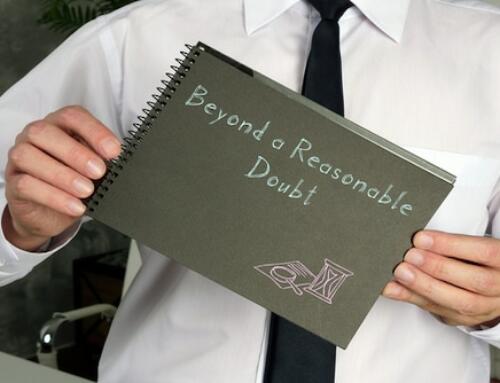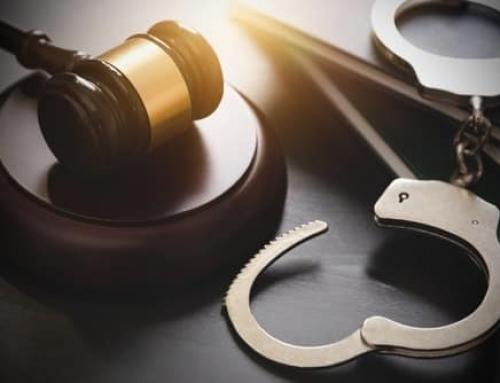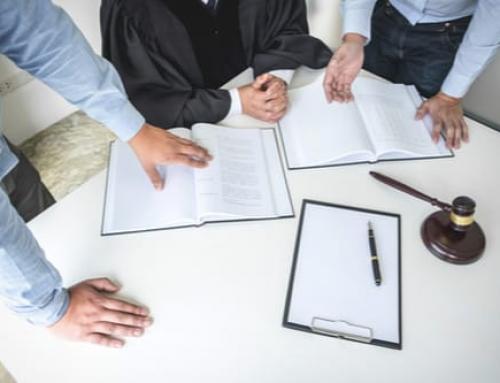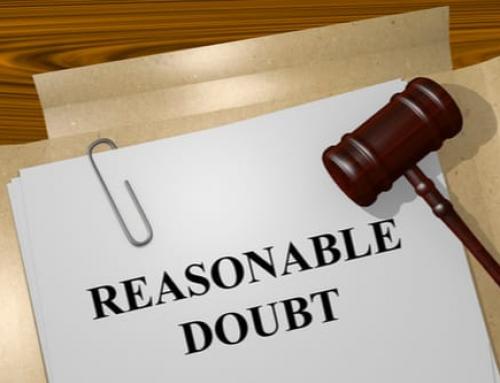Facing criminal charges can be an unnerving and stressful situation. Depending on the specific charges against you, you could face substantial fines and months or years of prison time. Having a criminal record will impact your life in innumerable other ways as well—and, as a result, you need to defend yourself by all means available.
This starts with hiring an experienced criminal defense lawyer to represent you.
When you hire a lawyer, building your defense starts with an initial consultation. In a recent blog article, we covered 10 questions you should ask before hiring a criminal defense lawyer to represent you. In this article, we’re taking the next step and looking at some of the questions you can (and should) ask about your case.
10 Questions to Ask During Your Initial Criminal Defense Consultation
Even if you are confused about your situation and worried about your future, knowing what questions to ask can be difficult. The criminal justice system is complicated, and without a law degree and years of legal experience, you cannot know all the intricate issues involved in defending against criminal charges. In other words, if you don’t know what questions to ask, you shouldn’t feel embarrassed—and you certainly are not alone. Here are ten questions you may want to ask during your initial criminal defense consultation:
1. Is My Charge a Summary Offense, Misdemeanor, or Felony?
In Pennsylvania, criminal charges can be classified as summary offenses, misdemeanors, or felonies. Summary offenses are the least serious type of criminal offense (carrying up to 90 days in jail), while misdemeanors can carry anywhere from one to five years, and felonies can carry from seven years to life. Depending on the specific facts involved, some types of crimes can be charged at different levels, so knowing the seriousness of the charge (or charges) you are facing is a key first step for making informed decisions.
2. What Penalties Am I Facing?
Based on the severity of the charge (or charges) against you, your lawyer can explain the potential penalties that are on the table. There are three classes of misdemeanors and three classes of felonies (as well as three classes of murder), and each class has its penalty range. Along with your potential jail or prison sentence, your lawyer can explain any fines, community service, probation, and other penalties you may be facing.
3. Should I Plead Guilty if I Committed the Crime?
You should never plead guilty to a crime unless advised to do so by your lawyer. Pleading guilty has serious consequences—and these are consequences that it is often possible to avoid. Your lawyer can explain all the reasons not to plead guilty and how you should approach your criminal case.
4. Can I Get in Trouble if I Know I’m Guilty and plead Innocent?
You cannot get in trouble for pleading “not guilty” if you believe you committed a crime. You have the right to plead guilty, and the prosecution has the burden of proving your guilt beyond a reasonable doubt. Your lawyer can explain this in greater detail, and your lawyer can explain all of the ways it may be possible to fight your case regardless of the underlying facts at hand.
5. Can I Obtain a Plea Deal?
If you committed a crime and it appears that the prosecution has the evidence it needs to meet its burden of proof, then negotiating a plea deal could be your best option. An experienced criminal defense lawyer will be able to assess the viability of obtaining a favorable plea deal and negotiate with the prosecution on your behalf if warranted.
6. Am I Eligible for a Diversion Program?
Before considering a plea deal, you must also determine if you are eligible for one of Pennsylvania’s diversion programs. These programs offer many first-time offenders the opportunity to resolve their criminal cases without the life-altering consequences of a criminal record. If you are eligible for a diversion program and you complete the program successfully, your paper will be wiped clear, and you will not have to face your charges at trial.
7. What is the Next Step in My Case?
Some steps in the criminal justice process move quickly. This is especially true shortly after an arrest. As a result, it is important to know your case’s next step—and to ensure you are prepared.
8. Should I Request a Jury Trial?
If you are facing prison time, you have the right to request a jury trial. But should you? There are several strategic considerations involved, and here, too, an experienced criminal defense lawyer can help you make an informed decision.
9. What Are My Chances if I Go to Trial?
While there are no guarantees, after assessing the facts of your case, an experienced criminal defense lawyer will be able to provide a preliminary assessment of your chances of avoiding a conviction if you go to trial. However, the answer to this question may change as more evidence comes to light (or if you make mistakes while your case is pending). As a result, it is important to share as much information with your lawyer as possible and to work closely with your lawyer throughout your defense.
10. What Are My Next Steps?
Finally, when facing criminal charges in Pennsylvania, it is essential to know your next steps. What should you do next? What do you need to avoid doing while your case is pending? Your lawyer can answer these questions as well, and you can (and should) rely on your lawyer’s advice to ensure that you do everything you can to protect yourself to the fullest extent possible.
Request a Free Consultation with Philadelphia Criminal Defense Lawyer Brian Fishman
If you face criminal accusations in Pennsylvania, we encourage you to contact us promptly to request a free consultation with Philadelphia criminal defense lawyer Brian Fishman. Call us at 267-758-2228 or tell us how we can reach you online now.






